#and it definitely panders to a lot of gendered stereotypes
Note
you know what would automatically change my hatred to love for sasusaku? If their genders were reversed. Majority of the reason why I hate sasuke and sakura relationship is because the type of environment and the culture I grew up in where it's been fed to women since basically birth to always be faithful to her man no matter how terrible he treats her, even after marriage. The pharse, "Just be patient and he will change", infuriates me to another level. Seeing sakura chasing after sasuke throughout the series after numerous rejections and an attempted MURDER on her by him made me roll my eyes so hard like girl just move the fuck on omfg. And even after their "marriage" sasuke's treatment towards her doesn't get better lmao, leaving her alone with a whole ass child to take care by herself?? BYE sakura's patience for him is outmatch cus I would've divorced his ass for that. Though, the more I mature, little by little I begin to understand the complexity of their relationship after putting my gender issues aside for a second and look deep into them. And especially now, after reading your perspective on their whole relationship, it really did made half of my hatred go away and understand the relationship wholeheartedly. Like yeah, I absolutely love the trope of one person saying they don't deserve the other person's love but the other person keep loving them anyway, that stuff makes me giggle and swing my legs in the air and shit. It's just that the only way this trope would work for me if the person loving them has enough self-respect for themselves AND if it's a girl in the former & the guy in the latter. And honestly, I found naruto being borderline obsessed with sasuke annoying too but the reason why I can digest it more well is because naruto can go head to head with sasuke without backing down. Like, I wanted to see at least ONCE sakura having a heated argument with sasuke, or punch him in the face in the series. I feel like sasuke deserves a punch from her at the very least 🤷🏽♀️
Sigh, I really did wanna love their relationship and their journey to love (that scene of him catching her when she was about to fall and then having that iconic eye contact had me feeling butterflies ngl) since it has all the tropes I love but the execution is just so...
i mean if it helps any i absolutely hate post-canon and that's where my primary divide with most sasusaku fans lies 😭 i'm not sure if you read the blue-plums post i reblogged but it's a good dissection of why exactly it fails as a conclusion to both their individual arcs and their relationship arc generally. the post-canon we see is a direct answer to what sasuke's and sakura's dreams are at the start of the series, but the problem with this is that sasuke and sakura are nowhere near being the same people at the end of the series as they were at the start. generally, i don't think post-canon really takes the individual arc of any character into much account. its primary goal is maintaining the status quo with a slight veneer of friendship power draped over it for aesthetics. but nothing at the root is changed despite every traumatic development the characters were relentlessly subjected to. resultantly, you're left with a portrayal of sasuke as a neglectful father who glorifies the lone-wolf hero trope, which goes against everything he could possibly have learned from itachi; and you're left with a portrayal of sakura as someone content to keep house despite the bulk of her character arc being grounded in her ability and desire to take initiative not only at home, but abroad. it's not true to who either of them is by that point and, even more than that, it's a disservice to everything they've put themselves through for the sake of the love they were vying for. so while i love sasusaku as it progresses up through 699, i tend to wholeheartedly ignore whatever comes after and relegate that instead to either my own imagination or blue-plums's in her fics
what i will say about the naruto and sakura distinction is that a lot of people are more comfortable with how sasuke reacts to naruto bc they believe what naruto is doing is right. it's kind of like: if the only thing sasuke will realistically respond to is violence then obv naruto can resort to that violence without dwelling on it too much. but if you think about violence in the context of sasuke's entire life, it's not actually helpful at all beyond its ability to physically bring him to a grinding halt. even when naruto finally breaks through to sasuke, it's not the violence that makes things click for him. it's the words he says after, and it's the words he's always said before that that have stayed in sasuke's mind. violence, in contrast, is a poisonous thing for sasuke bc it's the only thing that has defined the parameters of his entire life. it robbed him of every person he cared about prior to his meeting team seven, and inevitably it intimidated him into seeking out more violence once he realized that he was incapable of saving the new people he'd come to care about as well. everything, at the root, was driven by sasuke's traumatically-exacerbated response to love and loss. the idea of losing naruto and sakura to the hands of anyone else was unbearable. so he decided that he'd rather have killed them himself. it was absolutely irrational. but a twelve year old child put through that kind of successive, relentless trauma was never going to think rationally, and certainly not after being exploited by people like orochimaru and obito (and to an extent itachi) in turn
all of this to say: there is of course a gendered aspect to the fact that sakura's response to sasuke is markedly not violence. but i also think people sort of refuse to dissect her response any further and esp in context of the narrative itself. despite being the hallmark of rationality within the team and perhaps even the series, sakura was inevitably always driven by the value she placed on humanity. it would've been so easy and rational and "right" to kill sasuke bc he was an insurgent, a terrorist, a danger to public safety, etc. but sakura knew it was more complicated than that. even without knowing about the intricacies of the uchiha massacre she'd been a witness to his suffering and struggle and helplessness. she was as much unable to kill him bc of her love for him as she was unable to kill him bc she knew it wouldn't be right. bc really, what would it solve. sasuke being written off or dying would accomplish nothing bc he would become one more person in the long line of victims to nationalism and the military-industrial complex. while naruto's desire to retrieve sasuke was driven by his love for him it was also driven by the fact that he was stubborn and relentless and refused to give up on people. if you won't believe in yourself i'll beat the belief into you. it's a very shounen-esque trait. in contrast, sakura's desire to retrieve sakura, while also driven by her love for him, was significantly driven by her ability to see that sasuke needed help. in fact, that's all she ever wanted him to get: help. and it would be one thing for this to be an isolated desire but when you read it in context of her own goals as a medic and a mental health professional, her unwavering belief in sasuke is a lot more striking. she was the only person in the entire narrative who never resorted to violence as a solution to sasuke's problems. and she was angry, to be sure. much as she loves him the struggle to bring him back and convince him that he was worthy of love and healing left her emotionally exhausted. but they're also children at the end of the day. she could've been angry at him, or naruto could've been angry him, and in the end none of it would've mattered in the face of knowing they'd finally gotten through to him. he had a smile on his face, he didn't have an arm anymore, and for the first time in his life he met a loss with utter peace and content. it was a thing of miracles after six years of relentless grief and sorrow, and nothing else could've been on their mind.
at the end of the day, team seven's love for sasuke isn't rational. the farthest thing from it, really. but that's what makes it so radical in context. if love in naruto was only ever meant to be rational then hardly anyone would survive. love was always written as an act of defiance and for however subtle the depiction sakura exemplified it
#this is already so long i won't ramble any further in the text bc i've gotten across my point#but tldr you're totally valid! like honestly a lot of sasusaku fans tend to take the full scope of post-canon as gospel and it's infuriatin#and it definitely panders to a lot of gendered stereotypes#the relationship is i think way easier to digest if you isolate 1-699 and then pretend none of the rest exists lol#me personally i want sasuke to go on travels and meet lots of orphans and dedicate himself to humanitarian work#and i want sakura to do her mental hospital thing and research and advocacy at the village#before the projects she works on inevitably extend to intervillage endeavors#it's a nice way for both her and sasuke to explore their respective itches while also doing something that overlaps#with what the other person is doing. i am also a gazillion times more inclined towards them adopting an orphan#than i am towards the idea of them getting traditional married and having a traditional family and birthing traditional babies. boh-ring#i have a post somewhere on my old blog but to Me it would be revolutionary for sasuke to separate himself from the idea that the#only real bonds are those borne in blood. bc all that matters is love. i think adoption would be a really good personification of that idea#also occasionally they can come back to konoha and do silly couple things. like go to the farmers market and plant flowers#and harvest tomatoes. househusband sasuke and workaholic sakura. my dream combination truly#outbox
4 notes
·
View notes
Note
do you really think queer rep doesnt matter because that seems like the opposite of a lot of things you have stated before.
Short answer, no, I don't think that queer rep is irrelevant or even unimportant. It's more that, I think that the question 'is this good representation?' isn't the best way to go about artistic and cultural criticism from a queer perspective. Instead, I think there are better questions we can ask that get at the same things but encourage deeper and more meaningful encounters with art and more critical appraisals of mass culture.
So when people examine something to see if it is 'good rep' I think there are two questions contained here. First, is what is represented queer at all? IE is X character of Y identity? Secondly, is the way this character is represented good?
I think this framing of the questions encourages or at least, doesn't discourage somehat reductive answers. For 'is this representation at all?' if we are asking that characters represent us, this framing encourages us to look for explicit identities. Characters saying that they are bi, or trans, etc. Often one encounters online the idea that non-explicit identification doesn't count. Which is valid when we are talking about queerbaiting or cowardly narratives that play up gay subtext but never make it text. But what about allegory, or fantasy or hell, old fashioned ambiguity? Queerness is often about the liminal spaces between sexualities and genders, or understandings of gender and sexuality orthagonal to stroaght society. If we ask 'am I represented by this character?' we might close ourselves off to subtler ways of encountering queerness in art. For instance, in Nona the Ninth there are no characters that walk around and tell people 'I am trans' and only one character that uses they/them pronouns. But the book is full of characters that are in the wrong body (yes, when used in our world this is a reductive framing but I think it works here), and Pyrrha in particular is depicted as dysphoric. The experience of these characters is reflective of the trans experience (see also, the Matrix and Ghost in the Shell). I think Nona is a far more trans book than many more conventional stories that have trans characters. On the other hand, I have seen folks online seem happy with like, pride flag color coding in characters that have no narrative impact, like a gay version of 'spot the reference'. Some examples of this make me feel like that girl power scene in avengers endgame. It feels both pandering and unearned on the part of the corporate behemoth producing the media we watch. Again, I think this isn't just people not thinking deeply but that it reflects a flaw in the underlying question.
Even more fraught is the question of whether representation is 'good' or not. Generally 'good' is taken to mean several things, which are defined negatively - IE good rep is simply rep that is not bad. The thrre main ways rep can be bad, by most definitions, is if a character is stereotypical (in a negative way), villainous or if theor story has a tragic end. As far as I can tell, the two forces driving these definitions are establishment gay groups like GLAAD and fans. And a lot of concerns by both parties are valid! The Hayes Code basically mandated that implicitly gay characters had to be villains who came to bad ends, and characters were coded as queer through negative stereotypes. But this negative idea of avoiding bad representation also doesn't guide our analysis into very deep places. How often have we seen this idea of good rep turned into a demand that queer characters be virtuous heroes who love happily ever after? And this makes sense. GLAAD is worried about making us look good for the straights, and fans of all kinds want fanservice.
Put another way, a problem with framing queer art and queerness in pop culture in terms of representation is that this is a kind of atomistic way of looking at a narrative and its characters. It breaks the cast into individual people and those people into a list of traits and the story into character arcs (but mostly a list of outcomes). It does not view the work as a whole and so doesn't touch on themes or style or anything like that.
So are there better questions we can ask? Yeah I think so. What of we ask ourselves 'is this an authentically queer story?' Or on a more personal level 'does this reflect the queer experience?' Or in a more open ended way 'what does this work have to say to queer people about who we are and how we love our lives?' or 'what part of our lives is reflected in this?' I think these questions encourage a more interesting line of inquiry.
15 notes
·
View notes
Text
I’ve been working on this theory lately about my own media consumption that I’ll call representational contrarianism because I’m tickled at giving it a fancy sounding name. And it’s like this: given the choice between media with canonical queer characters and media that has characters you could argue are queer, I’ll default to the latter nine times out of ten.
And it’s like. Why?
(And yeah, this is a post about Supernatural, but it’s not ABOUT Supernatural, you know? Also everything is about Supernatural except Supernatural which is about umm truly who fucking knows.)
So, for me (and consider that the big disclaimer for this post) queer characters created by queer people either cut too close to the truth, or they’re disappointing. If they’re truthful, then the truth, through the warped lens of my own insecurities and uncertainties, becomes “yes Sarah this is who you are” or “no Sarah you ain’t this.” If they’re disappointing, if I don’t like them or I don’t like the romance or I like some other character better, I feel like I’m letting someone down--not always sure who, just someone, maybe it’s myself, maybe it’s the Community, maybe it’s this fictional person--and further, this becomes another tick in a column labeled “you’re straight and you’ve always been straight, you hurt gay people by thinking otherwise, and also everyone’s laughing at you.” Which is a lot of pressure to put on kindle lesbian romance novels I picked up for $1.99, but that’s what I feel.
The important thing is, these characters and stories are tests I’m very capable of failing.
And queer people created by straight people--look, it’s not universally true, but look at the shitty way explicit homosexuality is treated on Supernatural (a joke! flat! background! nothing!) versus the absolutely inadvertent queer-coding they did with Dean, Sam, and Cas. They wrote three distinct queer masculine allegories by complete fucking accident. They couldn’t have done that on purpose. They don’t think gay people are people in the same way that straight people are people. They think that they’re Gay and then a little later that they are people. (And does my hyperfixation on this issue mean that I approach gay characters the same way as shitty straight writers? Hahahahaha shut the fuck up I’m almost in therapy again, this is all on the docket.)
Queer characters created by queer people are a litmus test, and queer characters created by straight people are pandering. And you don’t really know about the creators that often, and they shouldn’t have to list their identities on the back of the book (although catch me scanning acknowledgements for the words wife, partner, people thanked with love but identified only as an initial, like deciphering how this book might make me feel is a test I can cheat on, but what do you do with a writers room? Memorize the gay ones if you can, cross-reference who wrote what eps?). So I’m comparing myself against these characters (bad choice) in the hopes of learning about myself while also hyperanalyzing these characters in a way that would be insanely unfair to do to a real person (are they Truly Gay? are they Truly Good Representation? if I don’t like them, is it their fault or my fault or their story’s fault or God’s fault or or or or or or or). So I end up evaluating this central question about myself--literally the question Who Am I--against characters (again, a bad choice) that I swivel wildly between believing they are better at being gay than me (because they might have been written by queer people) or are worse at being gay than me (because they might have been written by straight people).
(I know this is horribly reductive in regards to representation and own voices and good writing. You don’t want to see how long this post was with nuance.)
And let’s do the ultimate thought experiment: let’s say they did Supernatural good. And now Dean is bisexual! Yay! Canonically! They decide this in season four and he comes out and maybe he always knew or maybe this is all new to him, whatever, it’s all handled fantastically. GLAAD awards for everyone.
If Dean was gay, canonically gay, if he had what I do not--a cast of writers, a voice of God saying definitely, yes, yes, he is sexually and romantically attracted to multiple genders, he is Canon now, there was an interview in Entertainment Weekly about it and everything--then he is gayer by default than me--no writers, no God, no all hands meeting when everyone nods solemnly and concludes, let’s give the people what they want: this one’s a dyke. And he slips somewhere I can’t follow, into that tantalizing paradise called Certainty, and he learns the gay lingo, and he learns the hidden stereotypes only gay people get to know about other gay people, and he unlocks the Shared History and the Inside Jokes, and he speaks to the other people in the club with the knowledge that all of them deserve to be there because they know that they deserve to be there.
(Meanwhile, I am not in the club, I am instead down at the courthouse where I get called forward before the Gender Judges who reviewed the emergency application I made in the middle of the night, and they ask, “It says here you want to change your name?” and I say, “Actually no, I thought about it but the idea of being called anything other than Sarah genuinely horrifies me,” and they ask, “But you did say you were considering experimenting with your pronouns?” and I say, “Again, no, I’ve toyed with the thought but the idea of me being referred to as anything other than she/her viscerally disgusts me,” and they ask, “Okay but what is it that horrifies and disgusts you: the thought of being identified as someone you aren’t, or making a fuss about your identity in a way that draws attention to it?” and being unable to come up with an answer, I throw myself out the nearest window and start running, also causing me to miss my scheduled meeting with the Sexuality forum where we were going to litigate whether I was allowed to use dyke like that a paragraph back.)
(We don’t have time to get into gender. Just assume this all applies to gender stuff as well, and we’ll move on.)
But. If he’s not canonically anything, then he is as gay as I make him. In this daydream or that fanfic, we make the subtext text and here is a queer story, a gay story, a story about me as I would like to be seen and would like to be, and when I am done, I spray him off with some windex and wipe him down to factory settings. And then tomorrow there’s a different fantasy where he’s gay in a different way, a nuance, a tweak, a thousand variations on the same basic premise (what if this guy liked guys), and if I don’t like one, it doesn’t matter, it doesn’t stick. It’s a novel written in sand. The appeal is that it’ll wash away. Why should he be any more sure than me?
Anyway, that’s why queerbaiting is good actually (joke).
#long post#sorry I mean long post (apologetic)#the digressions I cut out good god#anyway#my public diary#spn
340 notes
·
View notes
Text
Venomous Visibility
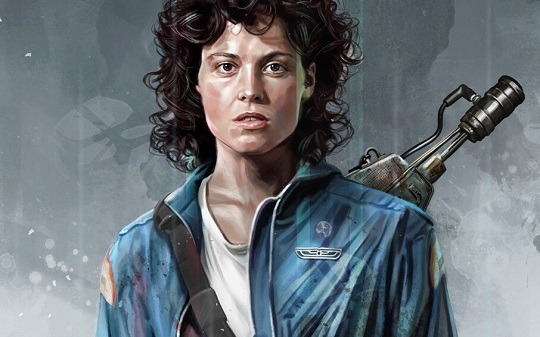
As a creator, I always find the subject of representation kind of dubious. With the f*cked up Last of Us II leaks, the continuous misandrist poison leaking into the Star Wars canon from that Kennedy-led Lucasfilm, and the incredibly amazing portrayal of Jill Valentine in the Remake, this sh*t has been on my mind lately. Like, how do you write strong, female, protagonist without falling into that Mary Sue trap? How do you code black without being offensive? How do you write gay without resorting to stereotypes? I don't know how to distinguish a trans or deaf or autistic or native person through text without outright stating these things. Where's the nuance in portraying someone queer without it coming across as pandering? I don’t know if it’s because of my limited experience as a straight black dude who kind of thinks the current trend of eighty-eight genders and personal identifications is kind of ridiculous but i find the attempts studios make to cater to these groups to be adequate as f*ck. Like, Sarah Connor and Ellen Ripley kind of defined feminine bad-ass and they both did it way back in the 80s. Why is there this irreverent need to portray this misandrist energy in modern cinema? Birds of Prey was a fun time but it was way heavy-handed on that “Girl boss” energy and it didn’t have to e. Harley Quinn is already a boss and the Birds kick ass in their own right. Why does that have to be the focus of your narrative instead of actual character development and plot? Especially when you have that Ellen Ripley template? It’s weird to say but it feels like certain groups want those aspects to define the entirety of a character instead of it just being a part of them. I think that mindset is both toxic and does a disservice to the given narrative, unless the narrative, itself, is defined by those aspects.
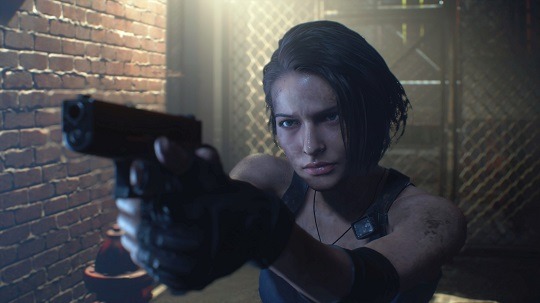
I'm of the mind that, if you wrote dope characters, that should he enough. Take, for examples, Disney’s newest attempt to represent a queer character in Onward. I’ve never seen the movie, i have severe daddy issues so this hilariously outside of my wheelhouse, but i hear that one of the characters makes a passing reference to their same sex spouse. How is that not good enough? Isn’t that how it is in real life? I don’t see gays running around, shouting about their homo love from the balconies and rooftops. Unless it’s Pride. To add that little tidbit in the middle of a Pixar film, aimed at the notoriously conservative middle America, and not have them trying to burn down city hall is kind of amazing and, in my opinion, very tastefully done. At least it’s better executed than the way Beauty and the Beast did with the LeFou reveal. Like, holy sh*t. Talk about blue-balls. This fervent obsession with representation for representation sake or to push an agenda is absolutely repugnant. You think the character of Rey Skywalker would be enough of a lesson on that poisonous nonsense for everyone, not just Disney. Be it female lead, bisexual heroine, gay protagonist, whatever; If you're character is strong enough to be more than whatever social label cats want to code them with, then the representation is inconsequential. Don’t force something that doesn’t need to be forced.
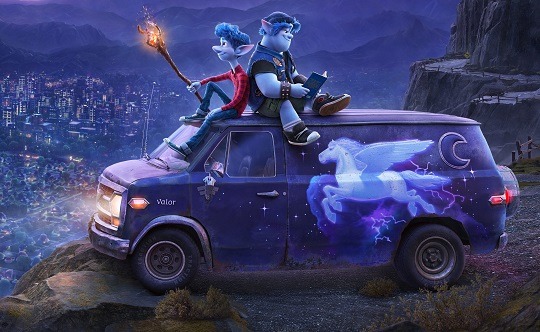
I’ve seen representation executed beautifully. Euphoria is one of the best shows i’ve seen on television and it deals with a ton of sh*t that most SJWs want to fight about. Zendaya is excellent in this show and so is her trans partner, Hunter Schafer. The way that show is written, you can tell that there is an understanding about that culture, a personal connection to their world. That level of representation is outstanding and i commend the creators for giving us such a rich vision for those characters. That said, the strength of Euphoria is in the characters. Rue makes that show. It’s about her journey and everything after that, is a part of who she is as a character, not the defining aspect of it. That subtlety is how you represent an uniquely ignored demographic. That’s how you handle representation in media for adults. For kids, i think this is a little much. Not many nine-year-olds out there are recovering drug addicts.
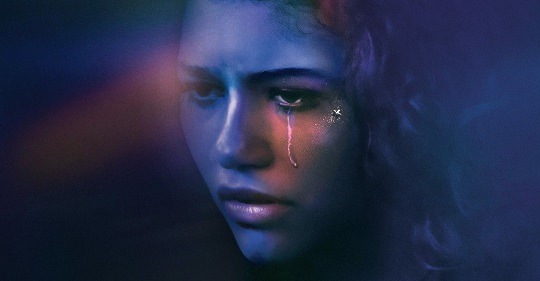
I think the best piece of media i’ve ever seen in terms of representation actually came out of Disney years ago and gets criminally slept on to this day. Atlantis: The Lost Empire i easily the most diverse, accessible, and palatable piece of “woke” media, Disney has ever made, and it was never created to be so. Atlantis is a story with a female co-lead of color, who has her own agency, doesn’t really fall into the trap of being “damseled” and ends up being a Queen by the rend of this story. The male co-lead is an anxious, neurotic, nerd with a distinct lack of brawn, who beguiles the antagonists with his intellect. The supporting cast is a mixture of people of color, both of which are dope as sh*t, and various nationalities. I’ve spoken at length about my love for Kidagakash Nedakh, she’d be my favorite Disney Princess if she wasn’t a motherf*cking Queen, but i’d be lying if i didn’t admit Audrey had a near equal place in my heart for her sheer dopenesss. Doc is cool, too. Seriously, how is there no Atlantis world in Kingdom Hearts yet? F*cking Disney, man... For the record, my actual favorite Princess is Rapunzel with Jasmine coming in a close second.
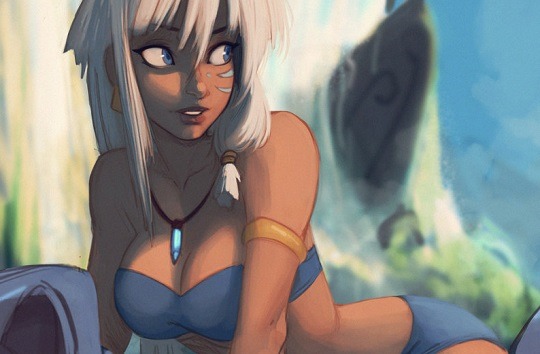
Personally, when I create a character, I describe the way I imagine how they physically appear and let the reader assign whatever else afterwords. If I say a character is female with caramel color skin and lavender hair, it's up to the reader to define the minute details in their mind's eye. Is the Lavender a natural hair color? Is she black? Maybe Hispanic? Could she be native or Indian or something completely different? A lot of people have caramel color skin. Hell, she might just have a tan, I don't know because the way I see the character, is different than whoever reads it. I think that's one of the joys unique to literature, that ability to essentially "customize" a narrative to taste, which only amplifies my inability to reconcile this trend of "representation." A lot of people in the fandom attribute Ahsoka Tano as an LGBTQ character and i think that’s fine. It’s never implicitly stated but i don’t think it really has to be. Ahsoka is a bad ass and she displays all of that effortlessly. If you ant to ascribe a queer connotation to her, fine, but that’s not the part of the character that matters to the overall narrative. It shouldn’t be the one aspect which is harped upon officially. I actually really, really, love Ahsoka so i have a dog in this fight. Not so much about the gay coding, that’s a thing that doesn’t really matter to me, more the fact that she needs deserves more shine in the franchise. Thank you Mando II. Also, Dr. Aphra. I hope they actually give her a show. She’s f*cking awesome and, i think, a legit LGBTQ character. I could be wrong about that though.
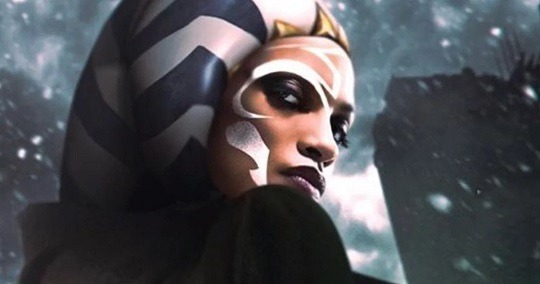
If a character can be whatever you want them to be, why does it have to be implicitly stated? How is all of this forced representation and social agenda pushing not disingenuous at that point? How is it not more a hindrance than a strength? Why is it acceptable to have your token marginalized appearance, if it’s forced and detracts from the overall story trying to be told? Is it really okay to just accept such pedestrian pandering for the sake of pandering? Like, i’m not gay. How am i supposed to write a gay character without being an ass about it? The only way i know how is to be direct with it. Direct but subtle about everything. “Strong Female Character” should not be the one aspect of your character driving their development. You don’t need to create a Mary Sue in order to have a compelling female lead. Tifa Lockhart and Norah Price prove that. Your protagonist doesn’t need to be “the big gay” in order to be a bad ass. Ian Ghallagher and Willow Rosenberg prove that. Also, they’re both gingers so, you know, double the suffrage points i guess? You don’t have to write a potato who can do physics in their head, to represent an autistic person. Sherlock Holmes and Amelie Poulain prove that. I would definitely do what Disney did with Onward in order to represent a character of that type of minority because, to me, as a minority, i don’t believe any singular aspect determine the whole of a character. Race, gender, orientation, religion, and other social identifiers; All of those are just qualifiers to the core of the character you’re creating. They are parts, never a whole. These things are just additions to embellish and enrich, not the definition of who they are, as much as everyone wants it to be. I mean, at the end of the day, how lame is your character if all they are is gay or stronk female? How much of a boner is our story going to be with a protagonist as deep as a puddle because you feel some kind of way about visibility?
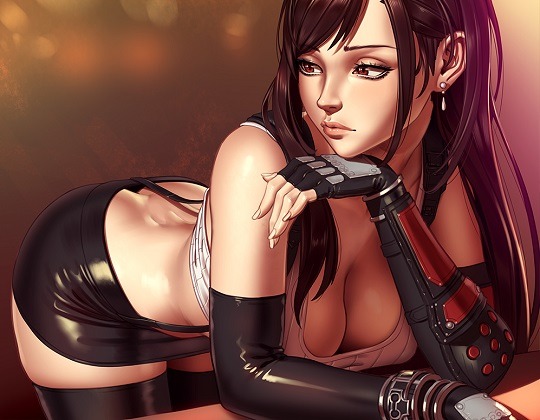
3 notes
·
View notes
Link
Since the trailer for Disney’s live-action film Mulan was released last weekend, both mainland Chinese in the East and the diaspora in the West have been abuzz about their cultural identity and its representation in Hollywood – albeit for different reasons.
Chinese viewers have, on one hand, been enthusiastic about the casting of Chinese-American actress Crystal Liu Yifei in the lead role and the chance for a seemingly more “authentic” Chinese story to be told on the global stage.
On the other hand, they have pointed out historical inaccuracies – such as the southern Chinese setting when the source material states that Mulan is from the north – and expressed concerns that the plot has been too “Americanised”.
Meanwhile, many Chinese-Americans were surprised to discover upon watching the trailer that the beloved 1998 animation had changed beyond recognition – most notably with the absence of talking dragon Mushu and male love interest Li Shang. Some also felt that the new film pandered too much to a mainland Chinese audience.
“The idea of a mythic mash-up of China [in the new film] … seems to play to the idea of a unified, singular China, an artistic representation of the one-China policy, which is troubling to me,” said Jeannette Ng, a British sci-fi author with Hong Kong heritage.
“A lot of the time, this conversation acts like the only Chinese people who matter are the ones who live in mainland China – that they are the only truly authentic ones and everyone else is too Westernised to count,” she said.
The online discussion indicates the delicate balance Hollywood interpretations of Chinese classics have to strike in portraying Chinese versus American values, as big US-China co-productions try their hardest to integrate the two for bigger global box office takings.
Despite ticket sales in China falling 3.6 per cent in the first half of 2019, owing to tightened government censorship, China is still projected to overtake the US box office next year, according to a recent report by professional services firm PwC.
Disney has tried hard to make the new film more true to its ancient Chinese source material, with a detailed – if inaccurate – historical setting featuring the ancient tulou round houses of the southeastern province of Fujian, and a star-studded, all-Asian cast with several icons of Chinese cinema such as Jet Li, Hong Kong actor Donnie Yen and Gong Li.
“Disney’s tent pole movies are aiming at a global audience. That being said, given that China is the largest international market and the story is based on a Chinese folk tale, Disney will definitely take the Chinese audience’s taste into consideration,” said a Chinese film producer, who asked to remain anonymous, at a major US studio in Beijing.
“However, this is also a double-edged sword, as people tend to be more picky when they see things they are familiar with.”
Indeed, several Chinese media think pieces have questioned whether elements of the original legend had become too Americanised in the film, leading to an inauthentic representation of a beloved Chinese heroine.
For instance, the Disney trailer suggests that Mulan joins the army to escape an arranged marriage, breaking away from family traditions and establishing her independence as a woman unbound by gender roles.
But in the original folk song Ballad of Mulan, on which the film is based, she volunteers to take the place of her ageing father in the army – making her a symbol of filial piety, courage and patriotism in traditional Chinese culture.
In a widely shared analysis discussing whether Disney’s Mulan was a feminist icon, Peking University Press wrote: “Perhaps this is a cross-cultural creative misunderstanding that reflects the core differences between Chinese and Western culture. If Mulan is seen as a feminist symbol, I fear this may be wishful thinking.”
However, both Chinese-Americans and Chinese nationals agree that the film, slated for release in March, is an inspiring tale for young girls.
“I feel like the people who are criticising the film are too attached and focused on the nostalgia factor. They are not seeing the bigger picture and the positive implications of this movie,” said Alex Diep, a 23-year-old American of Vietnamese-Chinese descent.
“They are disregarding that this film gives an opportunity for young Asian girls to look up to Mulan and see her as a role model,” he said.
Some Chinese have interpreted it as an inspiring fable of female strength and liberation, especially when ingrained patriarchal values and government initiatives such as the one-child policy have restricted women’s rights over the years.
“[Mulan] remains one of the very few fighters and not conventionally feminine figures in the Disney princess canon,” Ng said.
“[T]his is some sort of feminism education for a single-child generation in China that girls can fight like men do,” tweeted Chinese journalist Li Jing.
Chinese-Americans are also optimistic that it will be a sure-fire win for Asian representation on the big screen, especially after the success of last year’s romantic comedy Crazy Rich Asians.
“[Critics of the trailer] are disregarding the fact that this movie is another opportunity to showcase Asian people in a movie where we are not perceived as a negative stereotype,” Diep said.
Others feel that the film can help build a bridge between East and West.
“Mulan is a Chinese story. It comes from a completely different culture, one which I’m not at all convinced that Hollywood, or the West at large, truly understands yet,” said New Yorker Jonathan Pu, who is of Taiwanese descent. He said he enjoyed the lighthearted animation, but that it did not define his expectations for the remake.
“If Disney can stay true to the source material and convey [filial piety] in a way that even just some of the audience can grasp, then it will go a long way towards building bridges,” Pu said.
Ultimately, the success of this American spin on Chinese culture will rest on box office sales, which Disney hopes will exceed the 1998 animation that flopped in mainland cinemas. Recent Disney live-action remakes have had a mixed reception in China – Dumbo flopped in March, while The Lion King did moderately well on its release last weekend.
“I’m sure there will be a mixed response when the movie is released but it should have enough buzz and do well,” said the Beijing film producer.
“I hope it will be able to convey the spirit of Mulan and inspire millions of young girls.”
14 notes
·
View notes
Text
heya ! my name’s link & i’m 21+, go by he / they pronouns & am from the cst timezone ! this is my baby max who i’ve been on / off writing for about four years now & they’ve gone through some changes, but i’m excited to share them with you anyway. i’m so excited to write with you all & to get to know all your muses ! under the cut you’ll find some misc. info about max & a list of wanted connections, but hopefully at some point i’ll write up a proper bio for them. here’s their stats page & their pinterest board, so you can get a little bit more of an idea about them ! just like this post & i’ll im you for plotting & i’m the howwors within#0039 on d*scord if that’s easier for you ( personally it is for me so ) !

* ☆ ◞ JENNIE KIM. DEMIGIRL. SHE/THEY. ◟ wait, wasn’t that MAXINE “MAX” CHOI? they’re a TWENTY-TWO year old SENIOR, hailing from MANHATTAN, NEW YORK. i heard they’ve chosen to study JOURNALISM while living at DELTA NU. word around campus is that they’re CHARISMATIC & UNINHIBITED but also quite WITHDRAWN & HAUGHTY. if you happen to see them walking to class with their earbuds in, they’re probably listening to GIMME by BANKS.
misc. info :
call them maxine & you’ll be found dead in a ditch. they go by max only & have since they were eight years old. only family members can refer to them as maxine.
they are basically your typical dissatisfied rich kid. their parents have a lot of expectations of max yet they want nothing to do with any of them. they still follow their parents’ wishes out of a desire to remain favored in their eyes. it’s forced & they can’t stand it but they couldn’t imagine not pandering to their parents.
they’ve struggled with their gender & identity since they were little. being feminized has never felt right to them. it was only recently that they felt comfortable coming to terms with being nonbinary & using they / them pronouns. but they aren’t out, because they’re afraid of their parents finding out, so i don’t expect your muse to use they/them pronouns with max unless they’re plotted as close to each other.
while they appear as a snobby overachiever, they are actually quite lazy & bored of the life that’s been laid out for them. they’d rather lay around in bed all day than do what’s expected of them.
they hate their sorority & probably all the girls in it but they are very good at being fake nice when they have to be JGHKLDSGJH
they’re on the lacrosse team but really they just use it to be aggressive & hit people when they can. they’re probably on the bench most of the time for disobeying the rules & bad manners.
they’re part of the lgbtq alliance ( definitely something they keep hidden from their parents ) & part of the campus radio station which is definitely more in line with their passions.
they collect candles & various bathing products. they’re a bubble bath fiend. if they have a chance they’ll take a bubble bath & fall asleep in it.
they’re a fan of most feminist media, especially women in horror films ( even though they get scared but don’t call them out on it or they’ll fight ). but otherwise they really like star wars & could go on about why darth vader was the first sexy goth for hours.
they hardly ever show up to class & most of the time they just forget that it’s a thing they have to do. but they still get good grades somehow ( whether they’re just lucky or there’s some illegal things happening on their part is undecided on my part JHGFDKJGFHD ).
they love to drink. they hate being sober for the most part. they’re that person who has tons of alcohol stashed under their bed ready for a party or just a private drinking session.
there’s that stereotype about enbys that they like to play as non-human characters in video games. & you can bet that max is a bowser / kirby main in smash & a yoshi / isabelle main in mario kart.
they really like to isolate. sometimes they don’t even realize they do it & before they know it’s been three days since they’ve left the house. they definitely need someone who will pull them out into the sun.
they are very outgoing & charming, but some of it isn’t natural & they have a tendency to feel very exhausted after social outings. it’s hard for them to feel like themselves except around a very few certain people.
leave them alone about their fake cobwebs & cauldrons that stay out all semester. they don’t care. let them live their wannabe goth life JHGDKFJHGLFD
they’re scared of clowns & hate bugs. someone has to kill or get the spiders out of their room or they’ll have a mental breakdown.
they call themselves gay most of the time but they’re very pansexual. they’re not that fond of cismen except for smashing purposes but love everyone else.
they’re hard to get close to romantically. they’re very closed off & try to keep themselves protected. but they love the idea of being in love. they love to flirt but when the chase gets too serious they usually back off. they’ve probably never had a serious relationship or been in love.
they’ll pretty much throw themselves in front of a train for any woman / femme though.
also keanu reeves is the cismale exception but he’s everyone’s isn’t he ?
they can easily sleep for more than twelve hours at a time & once they’re out they’re out. they need like six alarms going off to wake them up & even then it’s probably not enough.
their favorite animals are bats they think they’re so cute.
they can’t cook please don’t trust them to make anything more than grilled cheese. ubereats is their best friend.
they stan: every girl group ever, beyonce, lizzo, rihanna, carly rae jepsen, charli xcx, banks, sky ferreira, megan thee stallion, doja cat, kehlani, rina sawayama, hayley kiyoko, mitski, st. vincent, robyn.
wanted connections :
exes ( any gender. details can be worked out ! i don’t mind making them the issue either ! they have mad commitment issues so ! )
hookups / fwbs ( any gender. singular experiences or regular type things )
childhood plots for those who’ve lived in manhattan ( childhood friends, first kisses / crushes, all that good stuff )
sorority sister plots ? does max secretly hate them or are they the one person they rely on in the house ?
lgbtq alliance / campus radio station people hmu !
flirtationships that don’t go anywhere
one-sided crushes ( don’t mind who has the feelings ! )
mutual pining but they’re both idiots & have no idea :see_no_evil:
people who force them to get out of the house ( might have to physically drag them out by their ear )
that parent friend who tries to force them to take care of themselves ( probably with disastrous results )
the person they keep around to kill the bugs in their room
movie marathon buddies
party pals ( drinking &/or smoking )
tinder date ( it can go well or not )
fake dating au ?????? ( preferably with a male since it’d be for their parents )
maybe friends who’ve only interacted online but are just now meeting ?
literally anything you can think of i’m probably down for it
6 notes
·
View notes
Text
WIG REVIEW: CAPTAIN MARVEL

Ok fine I saw this! As I have written before, we are all now obliged to see all Marvel Universe movies...so that we may see upcoming Marvel Universe movies. It’s a never-ending cycle that will continue forever and has made us collectively watch like years of long-ass movies but we will never ever stop. THE NEXT AVENGERS MOVIE COMES OUT IN A MONTH LET’S JUST DO THIS. But what about the wigs? Let’s discuss.

We begin in outer space, where people/aliens (?) wear kimono tops and train to fight in some intergalactic war that I definitely don’t care about and Jude Law wears terrible contact lenses. Brie Larson is identified as “Vers” and as contractually obligated by any female Marvel Universe lead, wears a terrible wig. It is kind of dried out, kind of curly, kind of a mess, but in that breezy/sexy way, and for only this opening scene, is rightfully pulled back into a pony so she can train to fight. Jude has some alien name that I don’t care to remember and tells Brie constantly that she’s too much of an emotional woman and I already see what they’re doing here FINE.

Anyway, before anything is explained about what the hell is going on in this planet, Brie and Jude are suited up and off to do some covert operation that I truly do not understand or care about. However, I cannot emphasize enough how much I disliked Jude’s contacts throughout the entire movie.

For this covert operation, Brie gets suited up in this...lewk? I do not know how or why her hair is forced into a mohawk but much like everything else happening in this movie at this point: NO EXPLANATION EVEN THOUGH VERY NECESSARY. THIS IS NOT THE LEWK.

Anyway, something goes awry and Brie ends up kidnapped by some other aliens (?) and put into some memory extracting device where we catch glimpses of “Vers” actual self back in the good ‘ol USofA. Most of these memories involve a younger version of Brie getting knocked down and told to stick to gender stereotypes and OMG I GET WHAT YOU ARE DOING MOVIE - OY.

And then somehow she escapes from the memory machine and gets catapulted to earth, specifically to Los Angeles in 1995 and GET READY FOR 90s REFERENCES! BLOCKBUSTER! RADIO SHACK! GRUNGE! SONGS YOU HAD HOPED TO NEVER HEAR AGAIN! There is even an elaborate chase scene through the LA subway system that felt very much like a sequel to Speed (except NOT Cruise Control - NO THANK YOU). Through it all, Brie’s beachy waves remained perfectly quaffed without any thought to putting it back. This actually outraged not just me but the entire viewing population who DEMANDED A HAIR TIE FOR CAPTAIN MARVEL AMEN.
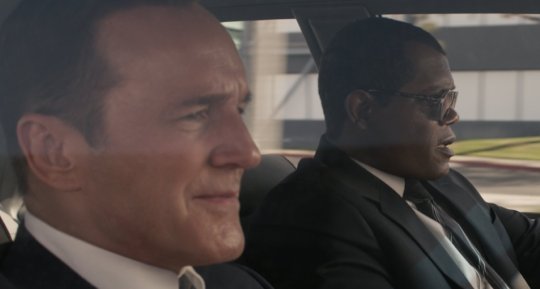
Also, we meet some Shield Agents as “played” by Samuel L. Jackson and Clark Gregg but mainly played by CGI de-aging technology. I’ve said it before and I’ll say it again: MARVEL JUST PLEASE USE THIS TECHNOLOGY TO GIVE US MORE 80s-90s MOVIES AND NOT MORE AVENGERS MOVIES I’M SO TIRED PLEASE.

Anyway, Brie and Samuel team up to go and try to figure out who the hell she even is (and like hard same on that - please explain yourself, movie!) and in order to go under cover at some airplane hangar, she wears this hat. Definitely can’t see your beachy wig under there now, gurl!
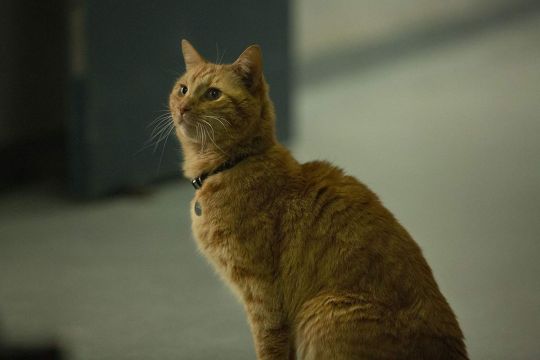
Then finally - FINALLY! - we meet Goose the cat. This cat was a large part of the promotional campaign for this movie and as a crazy cat lady IT ABSOLUTELY WORKED. However, I was already bummed that the friggin name of the cat was changed from Chewie to Goose to reference Top Gun and please movies: never change anything to reference Top Gun.

Anyway, I was led to believe that this cat would be Brie’s sidekick but it was more like Samuel’s side kick? Or really like no one’s side kick (cats don’t do that - which is fair) but also I honestly could have used about 1000% more cat content in this movie, just saying.

Regardless, we finally start getting some answers about “Vers” who is actually Carol DanVERS (Jude only saw the last part of her dog tag - get it?!?!?!), an American pilot who got stolen to space once by Jude. Carol used to work for Annette Bening in her covert operation MAR-VELL (DO YOU GET IT? IT’S MARVEL. DO YOU GET IT THO?????)
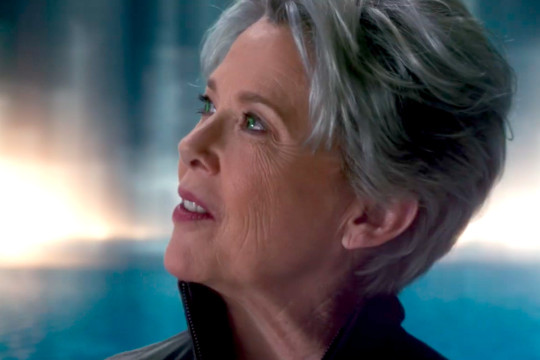
OBVIOUSLY, I LOVE ANNETTE BENING. But her talents and green contacts and fabulous grey coif are all wasted here. I WILL REMIND YOU ALL THAT ANNETTE BENING STILL DOESN’T HAVE AN OSCAR SO STOP MAKING HER WASTE HER TIME ON MARVEL MADNESS PLEASE AND THANK YOU.

Anyway, we get some more flashbacks to Carol Danvers piloting days, when she actually used a hair tie like a rational human being. Wait is this whole loose beach hair thing supposed to be a result of alien living? Nah.

Well Brie and her beach waved wig then become Captain Marvel in her new USA-themed suit and kick a lot of Jude Law and intergalactic ass all while remaining completely curled and not in her face while fighting. Wonders never cease! I think that Hollywood needs to realize that having hair look “perfect” all the time is NOT GOOD OR BELIEVABLE. Seriously this hair withstands like a nuclear explosion at one point and still stays easy/breezy/beautiful. Huh?

Oh also in order to fly, she still has to use that mohawk helmet with Bonnie Tyler music video eyes and no - I still don’t know why. TURN AROUND BRIGHT EYES.
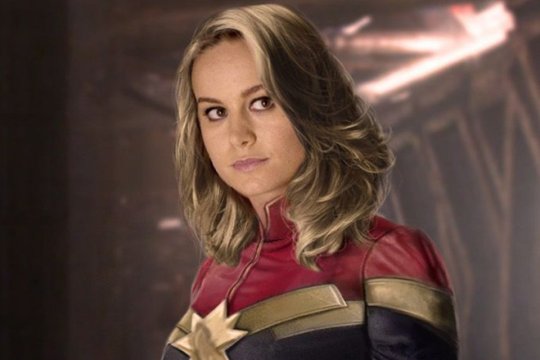
In the end, Brie saves the world and keeps her bewigged hair from looking bedraggled by remembering every time a boy told her she couldn’t do something or got knocked off a car or wall or whatever, like some inspirational Nike commercial about getting up and trying again and OMG PLEASE STOP WITH THE FEMINIST PANDERING. I get it - we all get it.
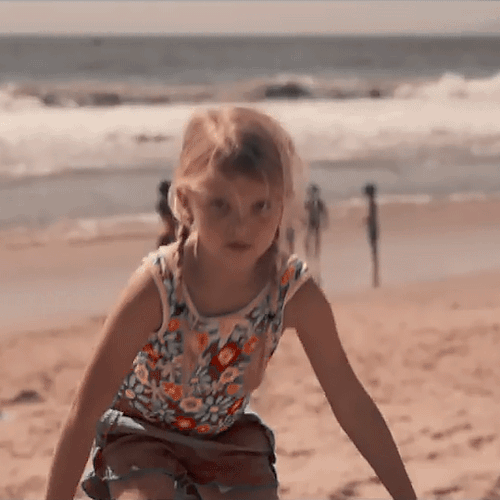
I truly wanted to love this movie and it’s not all bad but everything is just so heavy handed and clunky, much like the 90s itself. And then they played a Gwen Stefani song and I wished this movie were Wonder Woman again. They do have something in common, though: bad wigs.
VERDICT: DOESN’T WURQ
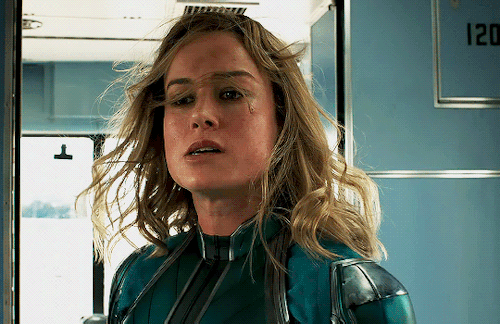
#wigwurq#captainmarvel#brielarson#annettebening#samuelljackson#crazycatlady#goose#rememberthe90s#heavyhandedfeminism
4 notes
·
View notes
Text
Romantic Comedies: Where’s the Beef?
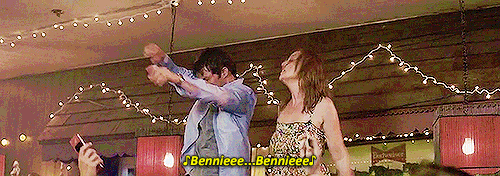
My guiltiest of guilty pleasures: Romantic Comedies. Not that I’m guilty about my love for Romantic Comedies (though being male, society would probably like if I were guilty). Almost all big name Romantic Comedies prior to 2016 (or even earlier) typically followed a strict guideline in terms of how their stories progressed. Not only that, but they typically followed a strict guideline regarding their character’s gender, sexuality, and race. That shouldn’t be a problem for most individuals. I’m not most individuals, though.
I’m the big G word.
I’m gay. I’m not only gay, but I’m hella gay. I’m a hella gay boy who grew up watching hella heteronormative movies who made great sweeping claims about romance and love. Not only is there a lot to unpack in terms of how that idea of love portrayed in media emphasized toxic masculinity, but there’s plenty to unpack in terms of what the media portrayed on who can love: white, cis-gendered, straight couples. I am only one of those things (one and a half if you wanna be pretentious about my mixed heritage).
I’m not salty about it, though. I’m kind of salty. If I think really hard about it, I’m really salty, so I try not to think about it too hard. I am, however, not salty about Chris Evans in any of these movies because Romantic Comedies introduced me to what a man he is.
Love Behind the Big (Terministic) Screen:
“When I speak of “terministic screens,” I have particularly in mind some photographs I once saw. They were different photographs of the same objects, the difference being that they were made with different color filters,” Kenneth Burke describes his definition and idea behind terministic screens (Burke, 45). It’s a pretty simple analogy and one that works well with describing how we, as humans, view our world. In particular, it gives us a great lens with which we can view media because media is simply a number of filters one on top of the other, both literal and figurative.
Love is one such screen and is described in so many works and movies, but it mostly comes center stage in both movies about love (The Notebook and other Nicholas Sparks stuff) and Romantic Comedies (27 Dresses and a lot of Chris Evans movies). What all of these movies have in common and what’s prevalent in Romantic Comedies is the notion that love is between a man and a woman and if you dare see “a gay” in these movies, they’re typically the main lady’s best friend. Not touching on the fact that they’re typically stereotypes. Moreover, it’s that these movies not only label love as between men and women, but between white men and white women. I mean, name a Romantic Comedy with two black leads that isn’t a Tyler Perry production. Okay, you got me: Just Wright with Queen Latifah was amazing, but so are most of her movies. Regardless of that fact, there’s likely 5 Romantic Comedies that got more praise (they don’t typically get a lot of praise for their predictable and often unchanged format) for every Black Romantic Comedy out there.
Why is that?
It’s because society has labeled love as something that’s white, heteronormative, and cisgendered. And we’re born into that. We look at our movies and our shows and we see a white couple and immediately understand that that’s the American Dream. Any notion of something beyond that, or different to that is often considered ‘pandering’ to a small audience or adhering to a liberal, SJW agenda. Why can’t it just be the fact that there’s all kinds of love out there? And that not all of it is white, straight, and cis?
That’s Pretty Gay Tho
Kenneth Burke defines man as a symbol-using animal, “We must use terministic screens, since we can’t say anything without the use of terms; whatever terms we use, they necessarily constitute a corresponding kind of screen; and any such screen necessarily directs the attention of one field rather than another” (Burke, 50). In this effect, as humans we use language to define certain things and in a more complex realm, we twist language into media and media defines even more things. Language will always remain a tool for humans to define things in our lives, but our mediums are ever evolving and getting even more widespread. It’s why it can be both a boon and a disaster when we use media to define ideas that society has perpetuated and will continue to perpetuate until humans start defining things differently.
Being the big ol’ Gay has been on the negative end of this desire to provide a lens for certain kinds of perspectives. Homosexuality is defined as less than men, not even men, but also as a tool for the white woman to satisfy the needs her other female friends can’t and certainly not her love interest. But, furthermore, homosexuality has its spot in the media: tragedies. Because what is being gay if not either a walking neon sign or a big ass tragedy. There’s a reason a media trope has been named after us: Bury Your Gays.
Bury Your Gays, as defined by TV Tropes, “Often, especially in older works (to the extent that they are found in older works, of course), gay characters just aren’t allowed happy endings. Even if they do end up having some kind of relationship, at least one half of the couple... has to die at the end” (TV Tropes) And the quote it takes from The Guardian discussing A Single Man nails the trope right on, “Colin Firth simply drops dead for no reason. Presumably Overwhelmed by sheer homosexuality, his heart can no longer keep beating. Beware, non-heterosexuals: Sudden Gay Death Syndrome can strike anywhere” (Rawson).
To slam that nail right into the coffin, TV Tropes has an entire list and descriptions of how this happens in various forms of media from Anime and Manga of all things to Video Games. It happens everywhere and it’s frankly tiring. Why does my life have to be a tragedy? I’m not a tragedy. I don’t come from an abusive family. My mom and dad are conservative Republican assholes who I haven’t come out to, but they wouldn’t suddenly hate me and kick me out. My life is average. My life is full of love. And I don’t want to die. Why can’t movies show that to me? If life really does get better, then why isn’t media showing me that I, a Filipino Mid-Western Homo, can find love and the hilarity of life just as easily as the white straight man or woman?
It’s 2018 and society is just now deeming it okay to put funny gay love stories on the big screen.
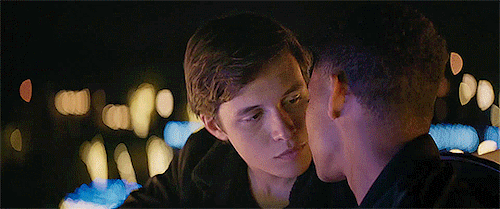
Love Simon just released this Spring and it was the type of mediocre Rom-Com I was looking for. Well, it wasn’t mediocre, I actually loved it... but I can’t be asked about the quality of a film I’m so biased over. I can’t critique the film because I’m just too happy that I can see a part of myself in it. That I can laugh and laugh and not worry about sobbing sad-angry tears in the end because the main character or his/her/their love interest has just died of AIDS... again. Those stories need to be heard, yes, but not in such a way that we aren’t allowed to see other, happier versions of our stories.
And then we have the fact that not many of these Rom-Coms show diversity. It took 2018 to put a big Asian cast on the big screen (no, Scarlett Johansson is not in this movie).
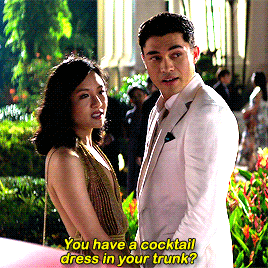
There’s a lot to unpack and it’s hard not to be passionate and angry about it. It’s about time that these movies are seen and that they battle the terministic screens we grew up with, that our parents grew up with, and their parents before them. This idea of the American Dream isn’t just white anymore and it isn’t very realistic either. Where is the other half of my two-and-a-half kids? Why is a kid only half a kid? I know it’s some weird average based on statistics, but that’s just so weird to say.
But, regardless, terministic screens can be used to our advantage and they’re necessary in our every day lives. We need to set terms and we need to see them through specific lenses, but sometimes we need to see them through multiple lenses. You show Andy Warhol the same picture in different sets of colors and he’ll display all of them. So, why can’t we do the same thing? Why does there only have to be one set of terministic screens in which we are taught is the normal and everything outside of it is other, is tragic, or is not worth telling? Love isn’t just white. It isn’t just cisgendered. And it isn’t just straight. Love comes in many different shades and its about time that Rom-Coms realize that and show use the hilarity of a transgender protagonist without making their gender the butt of every joke. Or an overweight protagonist. Or a bisexual protagonist. Or an older woman as a protagonist cause old people can still fall in love and they’re still beautiful, thank you very much Hollywood. Of all things that we need to broaden the screens for, Love falls under that category.
Just stop killing the gays off please. Please. And please let Chris Evans play a gay protagonist... it’s the one thing I hope for before I die.
Works Cited Stuff
Burke, Kenneth. Language as Symbolic Action. Empire State College, State University of New York, 1973.
“Bury Your Gays.” TV Tropes, tvtropes.org/pmwiki/pmwiki.php/Main/BuryYourGays.
Rawson, James. “Why Are Gay Characters at the Top of Hollywood's Kill List?” The Guardian, Guardian News and Media, 11 June 2013, www.theguardian.com/film/filmblog/2013/jun/11/gay-characters-hollywood-films.
#rom com#romantic comedies#terministic screens#analysis of love#school project#love simon#crazy rich asians#27 dresses
8 notes
·
View notes
Text
Venomous Visibility
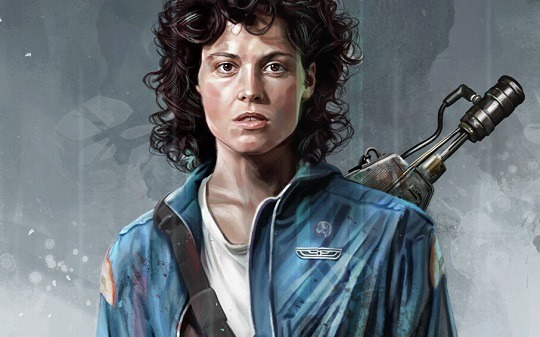
As a creator, I always find the subject of representation kind of dubious. With the f*cked up Last of Us II leaks, the continuous misandrist poison leaking into the Star Wars canon from that Kennedy-led Lucasfilm, and the incredibly amazing portrayal of Jill Valentine in the Remake, this sh*t has been on my mind lately. Like, how do you write strong, female, protagonist without falling into that Mary Sue trap? How do you code black without being offensive? How do you write gay without resorting to stereotypes? I don't know how to distinguish a trans or deaf or autistic or native person through text without outright stating these things. Where's the nuance in portraying someone queer without it coming across as pandering? I don’t know if it’s because of my limited experience as a straight black dude who kind of thinks the current trend of eighty-eight genders and personal identifications is kind of ridiculous but i find the attempts studios make to cater to these groups to be adequate as f*ck. Like, Sarah Connor and Ellen Ripley kind of defined feminine bad-ass and they both did it way back in the 80s. Why is there this irreverent need to portray this misandrist energy in modern cinema? Birds of Prey was a fun time but it was way heavy-handed on that “Girl boss” energy and it didn’t have to e. Harley Quinn is already a boss and the Birds kick ass in their own right. Why does that have to be the focus of your narrative instead of actual character development and plot? Especially when you have that Ellen Ripley template? It’s weird to say but it feels like certain groups want those aspects to define the entirety of a character instead of it just being a part of them. I think that mindset is both toxic and does a disservice to the given narrative, unless the narrative, itself, is defined by those aspects.
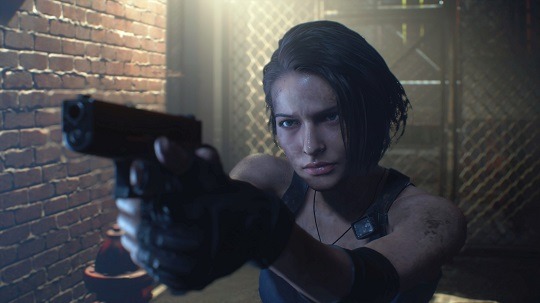
I'm of the mind that, if you wrote dope characters, that should he enough. Take, for examples, Disney’s newest attempt to represent a queer character in Onward. I’ve never seen the movie, i have severe daddy issues so this hilariously outside of my wheelhouse, but i hear that one of the characters makes a passing reference to their same sex spouse. How is that not good enough? Isn’t that how it is in real life? I don’t see gays running around, shouting about their homo love from the balconies and rooftops. Unless it’s Pride. To add that little tidbit in the middle of a Pixar film, aimed at the notoriously conservative middle America, and not have them trying to burn down city hall is kind of amazing and, in my opinion, very tastefully done. At least it’s better executed than the way Beauty and the Beast did with the LeFou reveal. Like, holy sh*t. Talk about blue-balls. This fervent obsession with representation for representation sake or to push an agenda is absolutely repugnant. You think the character of Rey Skywalker would be enough of a lesson on that poisonous nonsense for everyone, not just Disney. Be it female lead, bisexual heroine, gay protagonist, whatever; If you're character is strong enough to be more than whatever social label cats want to code them with, then the representation is inconsequential. Don’t force something that doesn’t need to be forced.

I’ve seen representation executed beautifully. Euphoria is one of the best shows i’ve seen on television and it deals with a ton of sh*t that most SJWs want to fight about. Zendaya is excellent in this show and so is her trans partner, Hunter Schafer. The way that show is written, you can tell that there is an understanding about that culture, a personal connection to their world. That level of representation is outstanding and i commend the creators for giving us such a rich vision for those characters. That said, the strength of Euphoria is in the characters. Rue makes that show. It’s about her journey and everything after that, is a part of who she is as a character, not the defining aspect of it. That subtlety is how you represent an uniquely ignored demographic. That’s how you handle representation in media for adults. For kids, i think this is a little much. Not many nine-year-olds out there are recovering drug addicts.
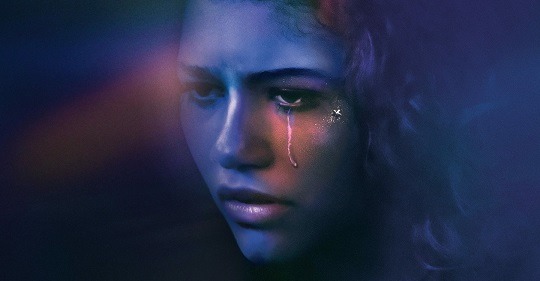
I think the best piece of media i’ve ever seen in terms of representation actually came out of Disney years ago and gets criminally slept on to this day. Atlantis: The Lost Empire i easily the most diverse, accessible, and palatable piece of “woke” media, Disney has ever made, and it was never created to be so. Atlantis is a story with a female co-lead of color, who has her own agency, doesn’t really fall into the trap of being “damseled” and ends up being a Queen by the rend of this story. The male co-lead is an anxious, neurotic, nerd with a distinct lack of brawn, who beguiles the antagonists with his intellect. The supporting cast is a mixture of people of color, both of which are dope as sh*t, and various nationalities. I’ve spoken at length about my love for Kidagakash Nedakh, she’d be my favorite Disney Princess if she wasn’t a motherf*cking Queen, but i’d be lying if i didn’t admit Audrey had a near equal place in my heart for her sheer dopenesss. Doc is cool, too. Seriously, how is there no Atlantis world in Kingdom Hearts yet? F*cking Disney, man... For the record, my actual favorite Princess is Rapunzel with Jasmine coming in a close second.
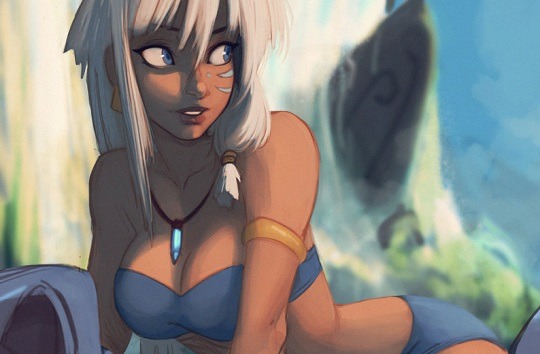
Personally, when I create a character, I describe the way I imagine how they physically appear and let the reader assign whatever else afterwords. If I say a character is female with caramel color skin and lavender hair, it's up to the reader to define the minute details in their mind's eye. Is the Lavender a natural hair color? Is she black? Maybe Hispanic? Could she be native or Indian or something completely different? A lot of people have caramel color skin. Hell, she might just have a tan, I don't know because the way I see the character, is different than whoever reads it. I think that's one of the joys unique to literature, that ability to essentially "customize" a narrative to taste, which only amplifies my inability to reconcile this trend of "representation." A lot of people in the fandom attribute Ahsoka Tano as an LGBTQ character and i think that’s fine. It’s never implicitly stated but i don’t think it really has to be. Ahsoka is a bad ass and she displays all of that effortlessly. If you ant to ascribe a queer connotation to her, fine, but that’s not the part of the character that matters to the overall narrative. It shouldn’t be the one aspect which is harped upon officially. I actually really, really, love Ahsoka so i have a dog in this fight. Not so much about the gay coding, that’s a thing that doesn’t really matter to me, more the fact that she needs deserves more shine in the franchise. Thank you Mando II. Also, Dr. Aphra. I hope they actually give her a show. She’s f*cking awesome and, i think, a legit LGBTQ character. I could be wrong about that though.
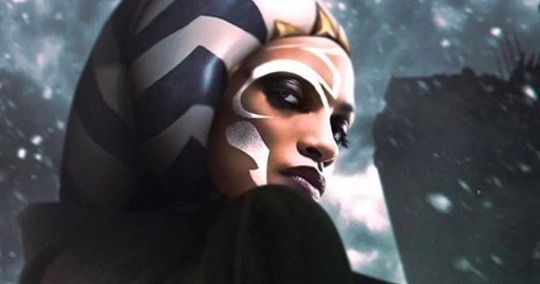
If a character can be whatever you want them to be, why does it have to be implicitly stated? How is all of this forced representation and social agenda pushing not disingenuous at that point? How is it not more a hindrance than a strength? Why is it acceptable to have your token marginalized appearance, if it’s forced and detracts from the overall story trying to be told? Is it really okay to just accept such pedestrian pandering for the sake of pandering? Like, i’m not gay. How am i supposed to write a gay character without being an ass about it? The only way i know how is to be direct with it. Direct but subtle about everything. “Strong Female Character” should not be the one aspect of your character driving their development. You don’t need to create a Mary Sue in order to have a compelling female lead. Tifa Lockhart and Norah Price prove that. Your protagonist doesn’t need to be “the big gay” in order to be a bad ass. Ian Ghallagher and Willow Rosenberg prove that. Also, they’re both gingers so, you know, double the suffrage points i guess? You don’t have to write a potato who can do physics in their head, to represent an autistic person. Sherlock Holmes and Amelie Poulain prove that. I would definitely do what Disney did with Onward in order to represent a character of that type of minority because, to me, as a minority, i don’t believe any singular aspect determine the whole of a character. Race, gender, orientation, religion, and other social identifiers; All of those are just qualifiers to the core of the character you’re creating. They are parts, never a whole. These things are just additions to embellish and enrich, not the definition of who they are, as much as everyone wants it to be. I mean, at the end of the day, how lame is your character if all they are is gay or stronk female? How much of a boner is our story going to be with a protagonist as deep as a puddle because you feel some kind of way about visibility?
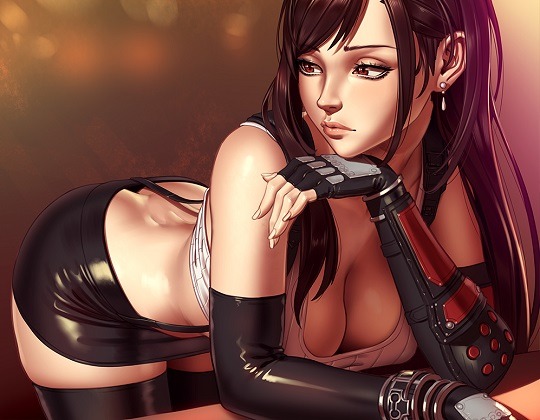
1 note
·
View note
Text
woozapooza replied to your post “Sorry for the impromptu rant go on and scroll past now but I was...”
your point about the potential for increased racial and sexual diversity reminds me of my problem with the random female elf they made up for the Hobbit movies
like I guess it’s nice to have some token female representation but you know what would have been a lot nicer? making ONE hobbit movie and being faithful to the book
and then spending the time and money that went into movies 2 and 3 on adapting an epic fantasy book that’s actually about women
rather than trying to pander by sticking 1 woman into an overblown adaptation of an extremely male book
Oh yes definitely, The Hobbit is a prime example of what I’m talking about (it also has about ten dozen other issues but let’s focus in on Tauriel for now) (the fact that I had to look up her name should tell you something). Fair warning that I’m gonna rag on Tauriel pretty hard so, uh, if you like the Hobbit movies and you like her you might wanna go ahead and skip this post. Under the cut cause it got long
You know what would have been a way better option, if they wanted to update the novel by including female representation? Make one or several of the dwarfs female. Honestly, given their androgynous nature, the fact that Gimli specifically says most non-dwarfs have trouble telling the genders apart, and the somewhat confused and fluid talk about which dwarves are female in Middle Earth anyway, it wouldn’t be at all hard to include - and it doesn’t need to change the movie at all.
As it is, we got a shoehorned love interest who didn’t exist in the books, and as such could not majorly affect the plot - depriving her of any real agency or importance and instead making her a hollow stereotype of a “strong woman”, and even worse we had to watch that stupid trope of “strong woman whose barriers are broken down by an unconventional yet attractive man”. And then she just cried over Kili’s corpse at the end and must have wandered off to the Undying Lands shortly thereafter, giving her an overdone and pointless storyline that went nowhere.
But honestly, I don’t even need any women in the film. It’s not like it’s a new story someone decided to put together and just not include women. This is an extant story that is, for good reason, well-loved, and I would have been fine seeing a good adaptation of the book, flaws and all. And like you said-- it would have been money much better spent if they put the budget of the latter two films into instead adapting Graceling, or Sabriel, or The Girl Who Circumnavigated Fairyland in a Ship of Her Own Making, or any other fantasy novel with a female protagonist. Or hell, even just something like Cinda Williams Chima’s works, which have mainly male protagonists but a ton of cool female characters in them.
To make a brief comparison -- I think it’s cool to have, say, a Shakespeare play where certain characters are changed to be women, and those can be incredible performances, but ultimately I’m also perfectly happy to watch a performance where everyone is playing their original gender. It’s not the same, in my mind, as certain things you really have to change, like cutting out pointless racial and antisemitic slurs. Lysander does not need to call Hermia an “Ethiope”; skipping straight to the line “Hang off, thou cat, thou burr! vile thing, let loose” tells us everything we need to know without causing unnecessary pain to anyone in the audience.
Those are the sort of changes you need to make when adapting a work: taking out casual racism/misogyny/homophobia/ableism/etc that do nothing to change the story. Adding in characters or severely changing the story to include more representation is the sort of thing that can be really good and really cool, but you don’t have to do it for the audience to still enjoy the story. If you do, you risk a Tauriel-like situation where what was probably, at some point, well-intentioned representation instead ends up an aimless and annoying distraction that detracts from the story rather than adds to it.
Again, that doesn’t mean “never adapt a work and add diversity”. Sometimes it works out great. Look at the RSC’s Richard II where they gave him and Aumerle an explicitly gay relationship - in my opinion, that’s a great performance and made a lot of sense, even if it did change the story. But also, we’re always going to get more mileage out of stories that were written for diverse people, ideally by diverse people. Why not make space for those?
3 notes
·
View notes
Text
Tokenism vs Diversity
Tokenism is the name of the religion I founded at age 9 to con kids at a Chuck E. Cheese birthday party. 5 were injured, 2 killed, and I got a giant stuffed frog from the top shelf. However, much to my shock, when I went to archive the incident on wikipedia this morning, I found that someone else had already made the page—and not just that, it was about a completely different thing! Suffice to say I was livid. I knew I should’ve had it formally copyrighted, but the notary rejected my paperwork because it was written in crayon. Still curious, I decided to see what this new fangled tokenism was all about, and apparently it’s “the practice of making only a perfunctory or symbolic effort to be inclusive to members of minority groups, especially by recruiting a small number of people from underrepresented groups in order to give the appearance of racial or sexual equality within a workforce,” and I thought, hm, that’s pretty interesting, I could write a blog about that if I wrote about anything important. But then I realized if you swap out “workforce” for “airport fantasy novel” suddenly it’s far more in my wheelhouse.
All right so first let’s figure out the difference between tokenism and diversity. It’s pretty simple really; it’s diversity when you like the thing and tokenism when you don’t like the thing. Unless your icon is, like, a sassy anime girl, in which they’re probably both for when you don’t like the thing. Okay, maybe it’s a little more complicated than that. While I have my doubts about the literary value of all the japanese titty games that steam keeps trying to get me to buy, none in their cast of lovely ladies are tokens.
The real distinction is a little blurred, much like semi-repressed memories of ball-pit sacrifices, but the basic gist of it is something I feel like most people intuitively understand, even if they don’t realize. Like, if you’re describing a character and “the black one” is the first thing that comes to mind, she’s probably a token. I feel like along with this there’s this assumption that it has to do with how many minority groups you represent, which is wrong. There are three women in the main cast of the Big Bang theory, and despite having different personalities they somehow all still feel like “the girl one”. Conversely Amy Adams is the only woman in Arrival, but that’s of so little importance to the story that I had to double check the IMDb page to be certain. Essentially if any character seems defined by their “otherness”, and that’s not what the story is about, they’re probably a token.
I feel like it’s important to note here that while tokenism should be avoided when possible, acknowledging tokenism in a work doesn’t make it inherently good or bad. That Princess Leia feels pretty token-y doesn’t make Star Wars any less of a classic, or even make her a bad character, nor does the fact that Rey doesn’t make the new trilogy better. Acknowledging flaws with things you like is healthy folks. A token Star Wars reference does mean that I can tag this post and reap the sweet sweet hype clicks though.
So we kinda know what to look for now, but how do you avoid writing tokens? Well, as nebulous as the definition is, it’s really pretty simple, so let me give y’all a little writing life hack; literally nobody cares if your story meets an imaginary diversity quota. We ess jay dubya types want greater diversity in media as, like, a general rule. Nobody is demanding that you, Sam Chesterfield of Rice Lake Wisconsin, write a story about the plight of the Native Americans. If muscley white dudes punching orcs is what greases your pig, then by all means go whole slippery hog. The people you’re trying to appease will find your attempts patronizing, and the rest of your audience won’t care. If your desire for a diverse cast comes from a genuine place though, you’ll probably be fine, though if you’re still concerned I do have a few tips for avoiding giving the unintentional air of tokenism:
Avoiding cliche roles. Sure, a lot of stereotypes have some basis in reality, but having another solitary girl serving as the team mother figure will only please power tripping TV Tropes moderators. Let’s get some black doctors, lady scientists, asian weightlifters. It’s not about pandering, it’s about making your all of your characters unique and memorable.
Have more than one of a minority in your story, especially a very large group like women. I know I said kind of the opposite earlier, but my point was that it’s not an automatic fix to bad writing, it still helps. The original Scooby Doo was written and animated by Gorillas, but the presence of Velma takes the weight of representing an entire gender off the otherwise token-y Daphne.
Bring it up. Don’t just give it half-heartedly lip service to the inequality, really pay it some mind. Have Irene lament the day to day struggles of life as a female human cannonball. Make me feel her plight.
On the other hand, just ignore it. If your character is compelling and interesting enough, no one will care. Cyborg from Teen Titans never felt like a token because he was just Cyborg. He was a member of the team, he was fun and likeable, he fit right in and you never questioned it. Cyborg from the new Justice League film felt like a token because he absolutely fucking was, so I suppose you’re kind of banking on your ability to write decent characters here.
So there ya go, that’s diversity vs tokenism. Hopefully you learned something today. Since I’ve just written about diversity on the internet I’m gonna be kinda disappointed if I don’t get someone calling me a cuck in my inbox. If you liked this blog and wish support my future writing endeavors, just mail a box of Chuck E Cheese tickets to 203 East Main Street. Spartanburg, SC 29319, and help alleviate the lack of giant stuffed frog representation in my house.
Writing Prompt: Write a piece of flash fiction which features no characters of an identical racial or sexual background as yourself.
1 note
·
View note
Text
Dove Commercial w Trans Mom
youtube
If you would like to feel outrage please look at the comments on this beautiful video reposted by a YouTube channel called the “Tea Partier”. Such as “Dove should not be celebrating mental illness.“ and “A B S O L U T E L Y D E G E N E R A T E“.
I love this commercial. It warms my heart to see representation and have LGBTQ people represented as people. The amount of hate I see to the trans mother is heartbreaking. People saying it’s propaganda. Propaganda is information (sometimes misleading information) used to promote a political ideology. And in a way this is propaganda, I think there are a lot of good people at Dove who believe in representation, diversity, and inclusion as well as validating the experience of people who feel marginalized. I also think this is a good marketing strategy and ultimately if this wasn’t selling soap to young liberals then this commercial wouldn’t have been produced. It’s a form of pandering, but pandering to a community that hasn’t had a voice or representation and telling them that they’re valid is a powerful and positive thing.
On the side of those who view this as hurtful propaganda it’s the idea that this commercial is promoting something unnatural and wrong. A person born as a man raising his child as a woman is a menace to society, sick in the head, and going to spread his sickness to his child. It sees the commercial as promoting mental illness in order to appeal to SJWs and consistent with a theme of liberal media twisting the minds of young people and creating trans, genderqueer, and other equally abhorrent mental illnesses by normalizing them. Liberal media is making LGBTQ “cool” and infecting our children with dangerous beliefs. Our kids are going to “explore” by fucking everything in sight with no good Christian restraint or discipline. Being LGBTQ is the epitome of sodomy and unnatural wrongness and it’s a disgrace that it’s normalized here next to legitimate forms of mothering. Perhaps even said to be equal to obviously much better and more stable form of mothering. It comes with the assumption that the only way to raise a child is by a cis straight male married to a cis straight female. The child must be raised in a two parent household and the parents can NOT get divorced.
It ultimately comes from a place of wanting the best for children and not understanding that the best a parent can offer doesn’t necessarily come from the parent’s gender, or the number of parents. There are good parents where it’s a standard nuclear family. There are also broken marriages staying together for the kids where the parents’ emotional hurt is taken out on the children. If the trans mom was forced to fill the role of the stereotypical father then she wouldn’t be as good of a parent than when she is a trans mother at peace with herself and giving her all for her children. Also, just because she has had sex with a penis with another woman does not invalidate her identity as a woman, gender is more fluid than that.
I will admit, it may be harder for a single mother to raise a child because she may not have as much access to resources, or two income streams. She also will deal with the struggle of trying to be a professional with a child, because she must be a professional in order to support them. She may have harder choices to make than the average two parent household, but there will be hard choices for every parent no matter the situation. And I’ll admit the child of an LGBTQ couple might face different difficulties than a child of a traditional nuclear family, if only because of hateful people who don’t know how to react, but that shouldn’t invalidate someone’s aspirations to be a parent and raise a child to be strong and choose love. Sometimes parents fail. Sometimes LGBTQ parents will fail. That doesn’t make them invalid. Their kids are only as disadvantaged as those who cannot accept them force them to be.
I would also like to address the idea that LGBTQ leanings are a fad that is infecting the youth. As evidenced by the growing LGBTQ community that didn’t seem to exist when these right leaning peoples were growing up in the 70s. Yes there was free love, but that was on the fringes of society, the aids epidemic was a righteous smite by God on the Gays, and LGBTQ leanings were classified as mental illness by the DSM. This is the glory age of America, this is the time when we, the white rural middle class, were at our height and had the most wholesome American experience. This is the time we want to go back to when we say make America great again, the times of our youth when everything seemed pretty good, we had values that we stuck to, and we believed in God and hard work.
This doesn’t recognize that the same time in American history was characterized by systematic oppression of LGBTQ youth. People who were pushed to the edges of society and forced to live in hiding. People who asked, pleaded, for representation and acceptance for what they could not control about themselves. The LGBTQ “lifestyle choice” was a response to not having anywhere to go in mainstream media and therefore turning to the fringes of society and new identities that fit with their orientation and gender more fully. LGBTQ had to recreate and redefine themselves because the mainstream didn’t allow for them to exist. These are real people with hard lives that had to hide themselves and face a lot of discrimination. They didn’t have the internet then to recognize that they were not alone, so many remained isolated and went along with the moralistic stature of the general populace. They tried to do what everyone else was doing. Truth is, LGBTQ people have always existed and it’s not a trend or a choice. The only choice in the matter is “do I come out?”. And in the past the answer was usually “no”. The rise of gay culture is the rise of the fringes of society coming together, and it’s hard to recognize them as people when they’re so historically underrepresented and have never really been shown to be people, only demons tearing at the fabric of society.
And now gay culture is seeing a commercialization similar to the commercialization of black culture. It’s become “cool” to be fringe, to be gay. These people who were real victims are having their victimization exploited to sell art and used in commercials to move product. Just like it was cool to dress like and imitate the aesthetic of gangsters who were rapping about the violence and oppression of poverty and discrimination. It’s become cool to imitate the oppressed and marginalized LGBTQ community, that developed its own fringe aesthetic simply to stay alive and have an outlet in their American past. The fringes of society are being brought into the forefront in a way that exploits this group, while also promoting them. The popularization of PRIDE simultaneously lifts up and illuminates a community that has spent so long in the shadows, as well as selling an aesthetic that many young gays don’t respect the history of.
Overall I think this commercial is step in the right direction. It celebrates all types of mothers as people with equal opportunity to be good parents, or to be bad. It highlights the ability and possibility of different definitions of motherhood that affirms the humanity of the trans population. It does all of this while pandering to a neoliberal audience and utilizing a fringe community to sell soap, as well as angering a confused and scared right wing. It’s a good commercial.
2 notes
·
View notes
Text
I just saw Hidden Figures! (Finally!! Australian release was so late.) And all these thoughts just … haven’t quite coalesced yet but let’s give ‘er a whirl anyway:
When the movie was released in the US I remember seeing a tumblr post + accompanying tags (@bethanyactually I think they were yours!) about the scene were Generic White Dude In Charge destroys the coloured bathroom sign. The tags were lamenting the fact that it took someone point out the problem for him to fix it and that we should pay more attention to the plight of others if we’re in a position of privilege. (I agree with this.) But there were follow ups along the lines of “he was just doing what a decent person would do” and “that’s not something to be celebrated.”
Which I actually vehemently disagree with. This story happened in the midst of Jim Crow. This is before Selma. This is before Martin Luther King had a dream. This is right around the time Rosa Parks would not give up her seat on the bus. This is the middle of the Civil Rights movement. Virginia at the time was racist af man. Nowhere in the US fought harder to keep schools segregated than Virginia. The supreme court said segregated schools were unconstitutional and what did the state of Virginia say to that? They said they would close schools rather than allow integration. And they did! They literally just closed public schools in districts that forced the issue. A whole generation was denied an education for some four or five years because the governor of Virginia was so staunchly racist. That shit ran deep.
And by the way, none of this was all that long ago. Most of you probably have parents that remember watching the moon landing live on TV - my dad talks about it and feeling this incredible since of awe at the accomplishment - and if not parents then definitely grandparents that lived through the Civil Rights movement. This is easily within living memory.
Humans are social creatures, we accept social norms because we want to fit into our social group. If, in the middle of Jim Crow, some white dude at NASA had stood up and said ‘there will be no more segregated bathrooms’ that would be a big deal. That would be something to celebrate. Even now. Even after all those attitudes seem outdated to most of us. You know why? Because they weren’t at the time. They were radical.
And I think that’s important, to view the actions of individuals from within the correct historical/cultural lens. Because it’s easy to be complacent, it’s easy to say “I would have helped Jews escape Hitler” or “I would have supported the Civil Rights movement.” It’s a lot harder to remember that being on the right side of history comes at personal risk and cost and is rarely easy. It involves standing out and that’s discomforting: because we’re social creatures and we want to fit into our social group.
It’s easy to recognise that yesterday’s leaders should have taken a stand against these things. It’s a lot harder to accept that their struggle is our struggle now. Hindsight is 20/20. Foresight is more like 20/200, but we need to not give ourselves free passes. Celebrating people who were on the forefront of progress - even when that progress is easy to take for granted by modern standards - is an important reminder that change does not come from inside your comfort zone. Not then, and not now.
So yeah, if some white dude had stuck up for desegregating the bathrooms at Langley, that would have been worthy of putting in a movie.
The problem is, that never happened.
In the book, Katherine Johnson basically says there was no coloured bathroom outside the west campus so she used the regular one and no one ever told her otherwise, so she just kept on doing it. Much like she just kept on asking until she was let into meetings, or putting her name on research reports. Her story is actually a great embodiment of “nevertheless, she persisted.”
The book talks about a sign in the cafeteria designating the table for coloured computers back in the World War II days and how a black woman called Miriam Mann kept stealing it. It was the black women at what eventually became NASA fighting to get rid of the coloured signs! Not some white guy!
Well, unless you count LBJ, but even then, he was petitioned by early leaders of the Civil Rights movement to sign executive order 11246 (which is like the opposite of every Trump EO so far) that prescribed equal opportunity in federal employment. There was a lot of desegregation around the time the NACA became NASA and yes, the management at what became NASA obviously supported or at least, didn’t hinder that progress despite the policies of Virginia at large.
And yeah, the book talks about how Katherine Johnson’s work eventually spoke for itself, and the team of engineers she worked with accepted her despite her gender and race because of the value of her contributions. She authored research reports and co-authored the research report that pretty much allowed the US to put a man in space and get him down again safely. That all happened.
But there was no character like that of That White Guy in the non-fiction novel on which the movie is based.
There was a white guy who took one of the girls under his wing - Mary Jackson’s mentor, the Jewish man whose parents were killed in a concentration camp? Yeah, that guy was real. That happened. (Not sure on the parents story … but he was Polish.) And she did fight to become an engineer, including going to court to be allowed to attend the white high school for night classes.
But That White Guy? Not so much.
That White Guy is such a stereotypical white Hollywood intrusion into a black story that solely exists to make a historical narrative more palatable to a modern (white) audience. It surreptitiously allows us to say we would “be like that guy” and not like one of those bad, racist people even though statistically, we’d be the latter. It’s a narrative choice made solely to make white people feel comfortable! And newsflash, this is not a movie that should be about white people feeling comfortable!!
I understand possibly why Hollywood makes decisions like this, because yeah, alienating your audience isn’t great for sales and to some extent getting the story to a mass audience is more important than a historically accurate rendering that no one watches but come on man. Dear (fellow) white people, you SHOULD feel uncomfortable in a period movie about race. You’re not special. It’s your legacy too. Own it. Make up for it in your activism and your choices and how you live now. But you don’t get to just insert a saviour snowflake character to project on and make history more acceptable to you. It’s so fucking offensive. And disingenuous. And a whole bunch of other things which mean I really can’t condone it as a narrative decision.
So yeah, there was Polish guy with a Jewish name who helped Mary Johnson become NASA’s first black woman engineer. That White Guy? Not so much. But who got far more screen time? Not the real Jewish guy. Wonder why that is.
(Not to mention, Kirsten Dunst’s character was inserted and I like that they cast the white woman as the racist antagonist and the white man as the progressive hero. Again, wonder why that is.)
Anyways you should still see the movie because please, support all the movies about women in STEM and black women and black women in STEM. But you should also read the book, which was written by a black woman and doesn’t pander to white people (not that I felt alienated reading it as a white person! actually I felt all nice and warm and fuzzy inside to read about the successes of black women!!!!) and, to quote my review on Instagram:
I was tearing up just in the introduction, out of gratitude for the women who forged paths that made it easier for me and my peers to follow, and out of affirmation. Because women have always been a part of science, black women have always been a part of science. And science and history belong just as much to us and especially our black sisters - #blackgirlmagic ✨ - as they do to white men. 💪🏼💪🏽💪🏾💪🏿
The movie is not a perfect or particularly faithful adaption of the historical account given in the novel, but I’m still very glad this movie exists to give these women the part in history they deserve. I’m glad that when Katherine Johnson sadly leaves us, we will all know her name and celebrate her achievements, deservedly. Truly, she’s someone I admire, someone who has become one of my idols (as a fellow lady scientist and somewhat-still-aspiring math nerd) and I had never heard her name or her achievements before this movie happened.
But y’know, I’m also very glad I read the book and I recommend you do the same.
Also I’d like to place one (1) order for Hollywood to stop taking history from women and people of colour and making white saviour-y, sexist-ish adaptions of real events. cash on delivery, ty in advance.
#hidden figures#thinky thoughts#long post#extremely long post#oops#i just have LOTS OF THOUGHTS#also white saviour narratives suck#it's late i'm tired sorry for typos
9 notes
·
View notes
Text
Teen Vogue Stays In Vogue: Keeping Up with the Times by Trying to Represent Them
I haven’t picked up an issue of Teen Vogue in a while. A couple years, kind of a while. And whether this was because I simply “grew out” of a time in which I found its content relatable, or simply thought I “should” grow out of it, either way, I definitely stopped reading.
Thumbing through issues for today’s talking-back, I found myself subconsciously searching for maybe incredibly gendered ad-content, or specifically arduous articles about the importance of toner, that I could write disappointedly about. And, to be fair, this was a very biased perspective to enter this decision with; that Teen Vogue must pander to the insecurities or questions of teens in stereotypical ways (and admittedly, I very possibly was evoking ideas about other magazines on the present one, but that’s another issue) that I could push back against.
Instead, however, I found an issue with none other than Hillary Rodham Clinton, against a backdrop of an artistic American flag, displayed proudly on the cover. While this wasn’t entirely surprising—during and in the wake of the election one could find Hillary Clinton’s face on many a cover—however, I was enticed as to how a teen-centric magazine would utilize such imagery and evocation.
Hillary Clinton’s face is paired with the headline, “nevertheless, WE RESIST”—a clearly even more specifically pointed indication of what the pages went on to hold. I was intrigued, surprised, and curious about what might be between the cover page and Tampax® ad on the last.
And while I feel passionate about multiple topics presented within the issue, such as writing responses to the five amazing young “trailblazing talents” listed on Teen Vogue’s “21 Under 21”(edited Nylander 58) and the questions they asked the former Secretary of State, or the article titled “Squad Goals (edited Nylander 16) detailing the lifelong bond of previous Clinton staffers—and the suggestions the article posits, or the detailed exploration of the powerhouse that is Congresswoman Maxine Waters in order to reiterate the work and strength she represents, attempting to accomplish all this in one post runs the risk of leaving each feeling unfinished or incomplete (at least, I think. Final project maybe?). Moreover, I wanted consciously avoid simply airing frustrations that I feel so often spin me around in circles, only to come out of such a tornado without any answers.
So, all this is to say that, I really appreciated the headline “WHY I MARCH” by Kimberly Drew, the title of an article exploring the writer’s own discovery of purpose in the wake of anger. And, like many others, the last election left me angry. Disappointed—yes, confused—definitely, temporarily disheartened—unfortunately, but also really just angry. Additionally, weeks later I left to study abroad for a semester, a departure date that left me incapable of going to the first Women’s March (at least, specifically termed as such), an event I saw as an important opportunity to pushback, and channel my anger into something good.
This past winter, I had better timing luck. The second annual Women’s March was to take place the day before I left to return to Grinnell, and my whole family (granted, this is my mom, my dad, and me) made sure to go. It was the warmest day of the winter so far, and the sun shined startlingly brightly. Multiple people throughout the day could be heard exclaiming, “The sun shines on the Women’s March.” And it really felt like it did.
But something else that I overheard was young marcher turn to her mother and ask, “Everyone’s marching for a lot of things. What are we marching for?” a response presumably to the wide variety of signs and cheers. This stuck with me. And I think this is what jumped out at me so significantly early on in the issue. In the Letter from the Editor, Elaine Welteroth—the person who asked Hillary Clinton to guest edit the issue—plainly states: “Some will say it’s too partisan, too political, to retrospective, too ‘echo-chambery.’ This issue isn’t for them. It was designed for the millions who acknowledge that until women, girls, people of color, members of the LGTBQ community, immigrants, and the economically disadvantaged are on an equal playing field, we must hold a space for these critical conversations” (Welteroth 12). And I think, maybe in a couple years, this might answer that little girls question. That there’s a lot to fight for.
So, I suppose—especially in the context of this politically charged issue—this is where youth culture meets need for change. I suppose Teen Vogue has changed significantly (to an extent) from the time in which I turned to it for nail trends and fashion advice in middle school (a time unkind to most). An adult, the editor, sees a space that can be occupied by educational, motivational, and arguably encouraging pieces, and takes it, for the betterment of a younger generation. And in this way, this blog post has veered almost entirely from what I thought it would initially center upon.
So here are a couple takeaways I gathered from Hillary Rodham Clinton’s edition of Teen Vogue:
They’re still going to try to sell you perfume and face wash
Moving into the post-grad world, I’m trying to keep in mind the advice afforded by Kimberly Drew: “One cannot go to every protest, but we can all live with conviction. Ask yourself: What am I willing to fight for, and how do I make that fight part of my daily life?” (Drew 75)
Diversity is still significantly lacking in commercial representations
Hillary Clinton doesn’t mind “seeing articles about the search for the perfect makeup remover next to essays about running for office” (Clinton 12)—not sure what to do with this information yet
“Resistance and resilience” (Clinton 12) seem like they should be written in block letters in as many places as possible
Works Cited:
**All citations from same issue, various articles and authors**
Welteroth, E. ed. Clinton, H. R. 2017. “nevertheless: WE RESIST.” Teen Vogue, 4, December 5, Full issue.
0 notes